Brazil election - live: World leaders congratulate Lula as he pips Bolsonaro to become president
The final result of the election is expected in the next few hours
Your support helps us to tell the story
From reproductive rights to climate change to Big Tech, The Independent is on the ground when the story is developing. Whether it's investigating the financials of Elon Musk's pro-Trump PAC or producing our latest documentary, 'The A Word', which shines a light on the American women fighting for reproductive rights, we know how important it is to parse out the facts from the messaging.
At such a critical moment in US history, we need reporters on the ground. Your donation allows us to keep sending journalists to speak to both sides of the story.
The Independent is trusted by Americans across the entire political spectrum. And unlike many other quality news outlets, we choose not to lock Americans out of our reporting and analysis with paywalls. We believe quality journalism should be available to everyone, paid for by those who can afford it.
Your support makes all the difference.Luiz Inacio Lula da Silva of the leftist Worker’s Party has defeated incumbent Jair Bolsonaro in a tight election to become Brazil’s next president.
With 98.8% of the votes tallied in the runoff vote — Lula had 50.8% and Bolsonaro 49.2% — the election authority said his victory was a mathematical certainty.
Mr Lula da Silva, the country’s former president from 2003-2010, has promised to restore the country’s more prosperous past but faces headwinds in a polarised society.
It is a stunning return to power for Lula, 77, whose 2018 imprisonment over a corruption scandal sidelined him from that year’s election, paving the way for Mr Bolsonaro’s win and four years of far-right politics.
His victory marks the first time since Brazil‘s 1985 return to democracy that the sitting president has failed to win reelection.
World leaders, including US president Joe Biden and French president Emmanuel Macron, congratulated Mr Lula da Silva on his victory.
His inauguration is scheduled to take place on 1 January.
More than 120 million Brazilians expected to cast ballots
The vote will determine if the world’s fourth-largest democracy stays the same course of far-right politics or returns a leftist to the top job — and, in the latter case, whether Bolsonaro will accept defeat.
More than 120 million Brazilians are expected to cast ballots, but because the vote is conducted electronically, the final result is usually available within hours after voting stations close in late afternoon.
Most opinion polls gave a lead to da Silva, universally known as Lula, though political analysts agreed the race grew increasingly tight in recent weeks.
For months, it appeared that da Silva was headed for easy victory as he kindled nostalgia for his 2003-2010 presidency, when Brazil’s economy was booming and welfare helped tens of millions join the middle class.
But in the Oct. 2 first-round elections, da Silva finished first among the 11 candidates with 48% of the votes, while Bolsonaro was second at 43%, showing opinion polls significantly underestimated the president’s popularity.
Many Brazilians support Bolsonaro’s defense of conservative social values and he has shored up support with vast government spending.
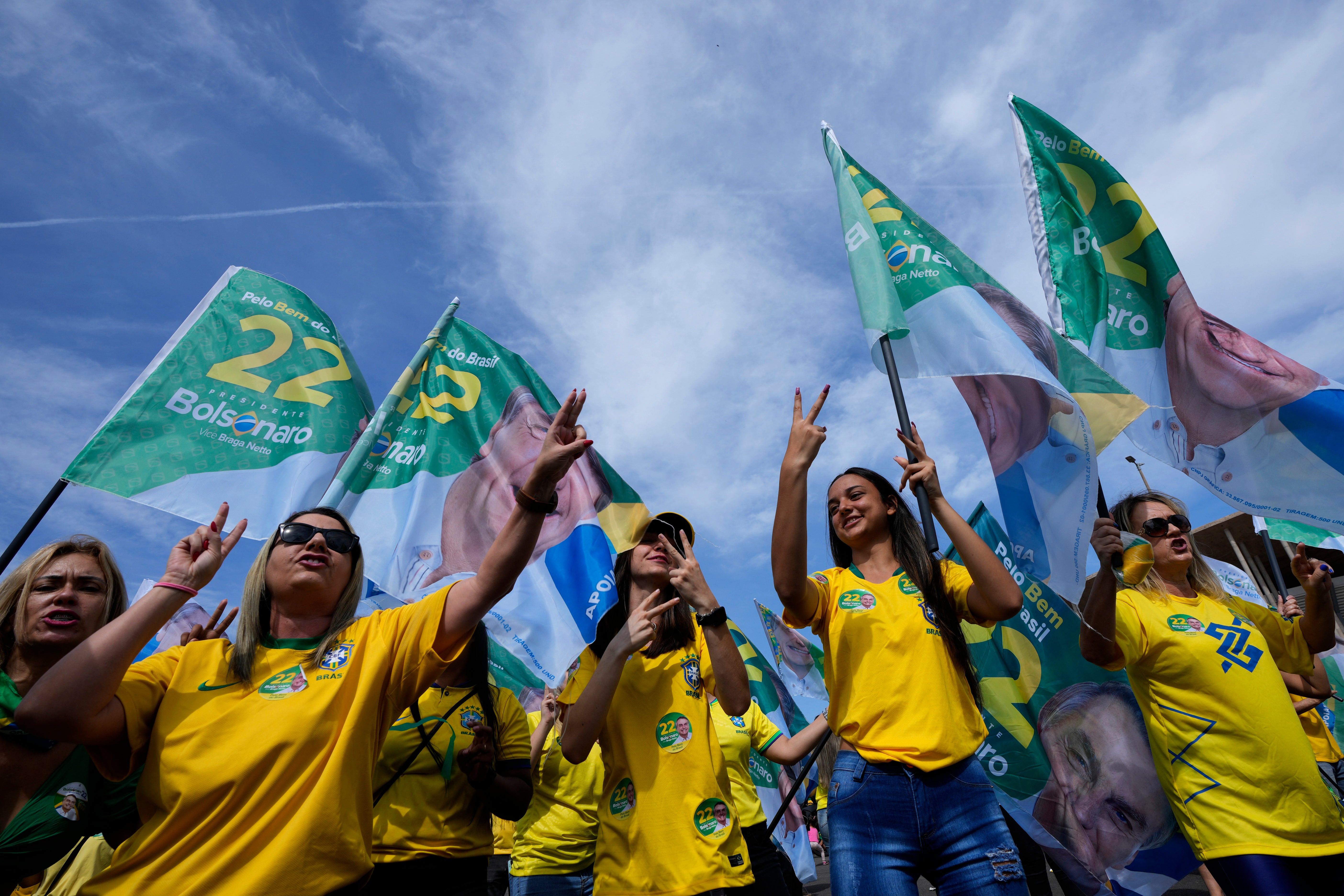
‘Politically, Bolsonaro is stronger than had been imagined'
Candidates in Brazil who finish ahead in the first round tend to win the runoff.
But political scientist Rodrigo Prando said this campaign is so atypical that a Bolsonaro win could not be ruled out.
The president secured endorsements from governors of the three most populous states, and allied politicians scored big wins in congressional races.
“Politically, Bolsonaro is stronger than had been imagined,” said Prando, a professor at Mackenzie Presbyterian University in Sao Paulo. “Mathematically, Lula is in front.”
Twelve gubernatorial races will also be decided, among them Brazil’s most populous state, Sao Paulo, Amazonas state and northeastern Bahia state.
More than 150 million Brazilians are eligible to vote, yet about 20% of the electorate abstained in the first round.
The Supreme Court has issued a ruling enabling state capitals to provide free public transport on election day, and both da Silva and Bolsonaro have focused efforts on driving turnout.
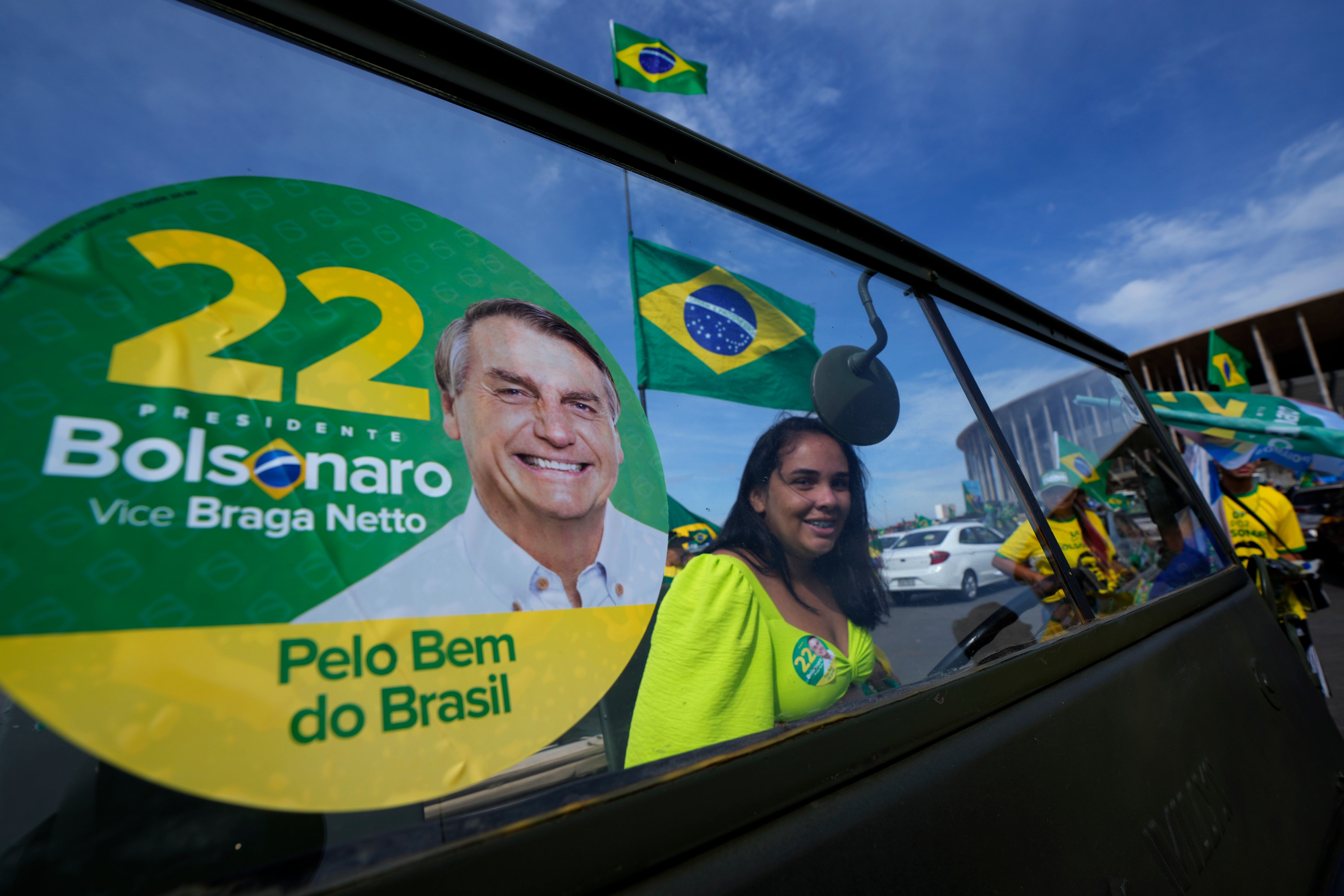
Candidates battled with online smear campaigns
The candidates presented few proposals for the country’s future beyond affirming they will continue a big welfare program for the poor, despite very limited fiscal room going forward.
They railed against one another and launched online smear campaigns — with considerably more attacks coming from Bolsonaro’s camp.
His four years in office have been marked by proclaimed conservatism and defense of traditional Christian values.
He claimed without any evidence that da Silva’s return to power would usher in communism, legalized drugs, abortion and the persecution of churches.
Da Silva homed in on Bolsonaro’s widely criticized handling of the COVID-19 pandemic and said the president failed to care for society’s neediest members.
And he painted Bolsonaro as an opponent of the Amazon rainforest, given that he defanged environmental authorities and presided over a surge in deforestation.
In campaign videos, da Silva also took aim at Bolsonaro for being behind a policy directing billions to lawmakers for pet projects in exchange for political support.
It is referred to as the “secret budget,” due to a lack of transparency around the money’s final uses, and da Silva said it depleted funds for key social spending.
Da Silva was jailed - and then convictions annulled
A sprawling investigation revealed Silva’s Workers’ Party involvement in vast corruption scandals that ensnared top politicians and executives.
Da Silva himself was imprisoned for 19 months for corruption and money laundering. The Supreme Court annulled his convictions in 2019, on the grounds that the judge was biased and colluded with prosecutors.
That did not stop Bolsonaro from reminding voters of the convictions. Da Silva’s potential election would be like letting a thief return to the scene of the crime, the president warned.
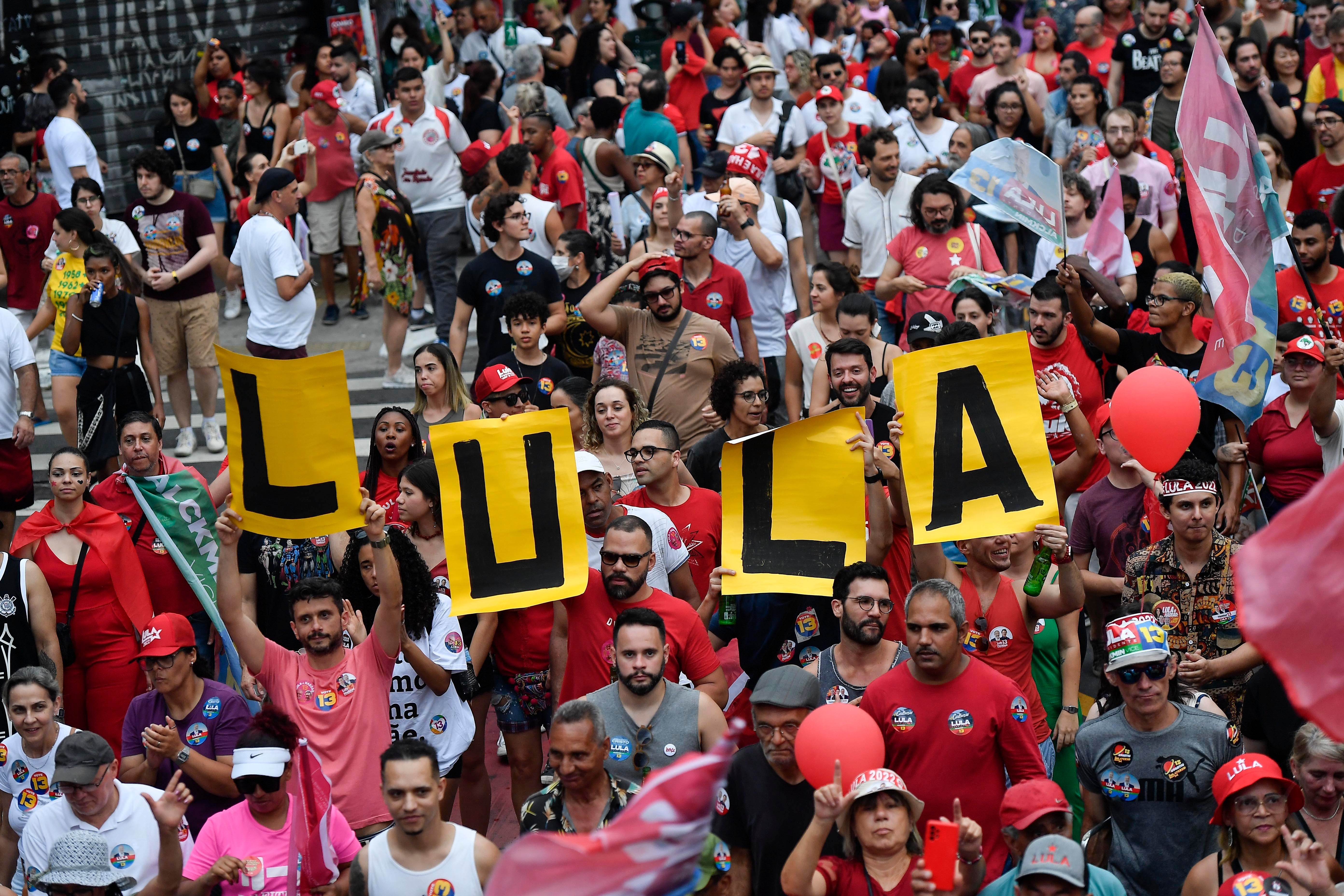
Bolsonaro claimed electronic voting machines are prone to fraud
The president’s digital mobilization was on display in recent days as his campaign introduced fresh — and unproven — claims of possible electoral manipulation.
That revived fears that Bolsonaro could challenge election results should he lose — much like Donald Trump, whom he admires.
For months, he claimed that the nation’s electronic voting machines are prone to fraud, though he never presented evidence, even after the electoral authority set a deadline for him to do so.
More recently, allegations focused on airtime for political ads. Bolsonaro’s campaign claimed that radio stations failed to air more than 150,000 electoral spots and implied that might have resulted from an intentionally malicious effort to hurt his candidacy.
The electoral authority declined to open an investigation, citing lack of evidence. “We don’t know whether this result will be contested or not, and to what extent,” said Carlos Melo, a political science professor at Insper University in Sao Paulo.
“It’s a very tough second round and a very tense Sunday, and tensions may continue beyond today.”
Voters queue up to vote on Sunday
Brazilians have began voting this morning in a polarizing presidential runoff election.
It’s just after 8am in the country, and members of the public have been seen queuing up to have their say. It is expected to be a close contest between President Jair Bolsonaro and his political nemesis, former President Luiz Inacio Lula da Silva.
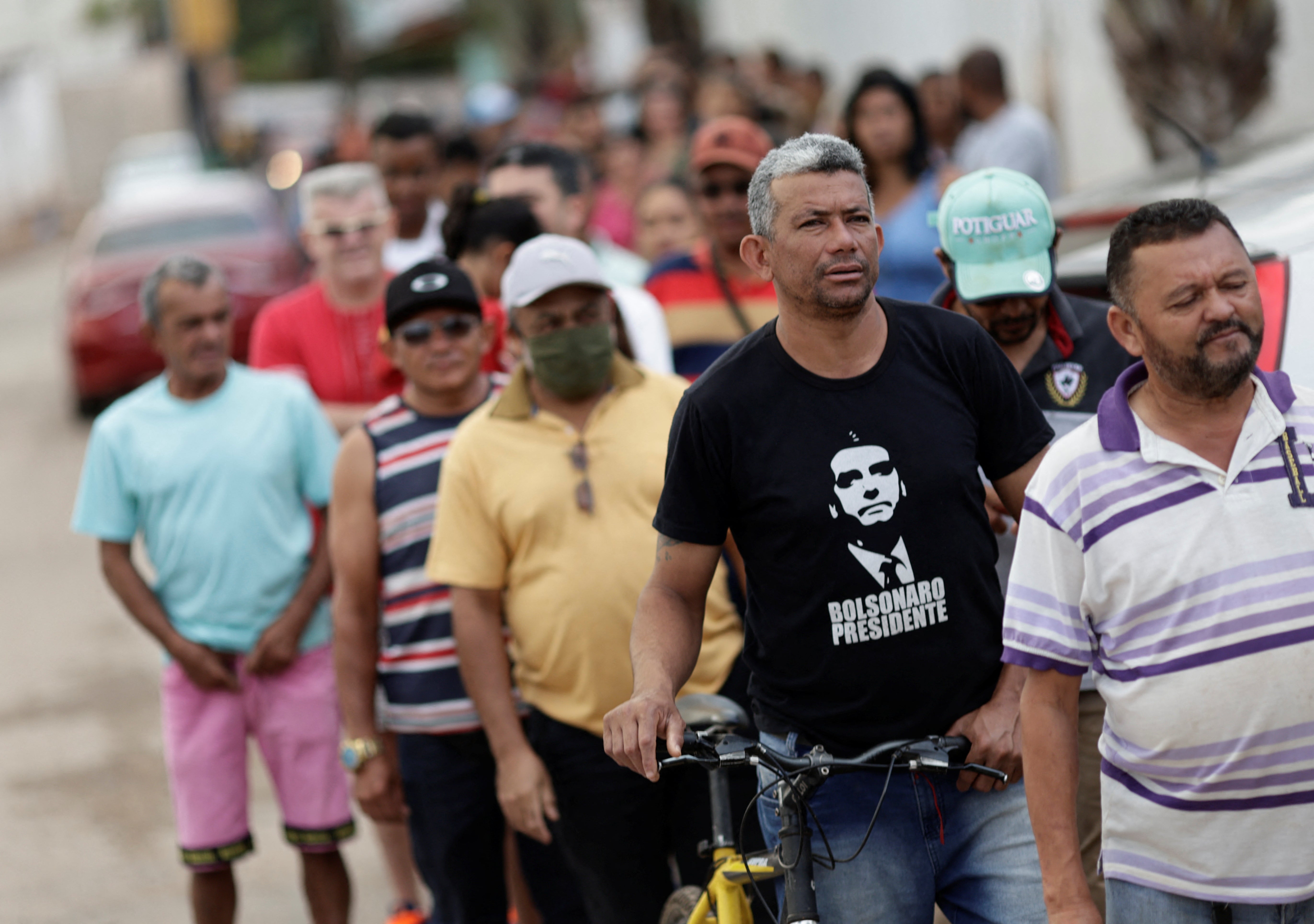
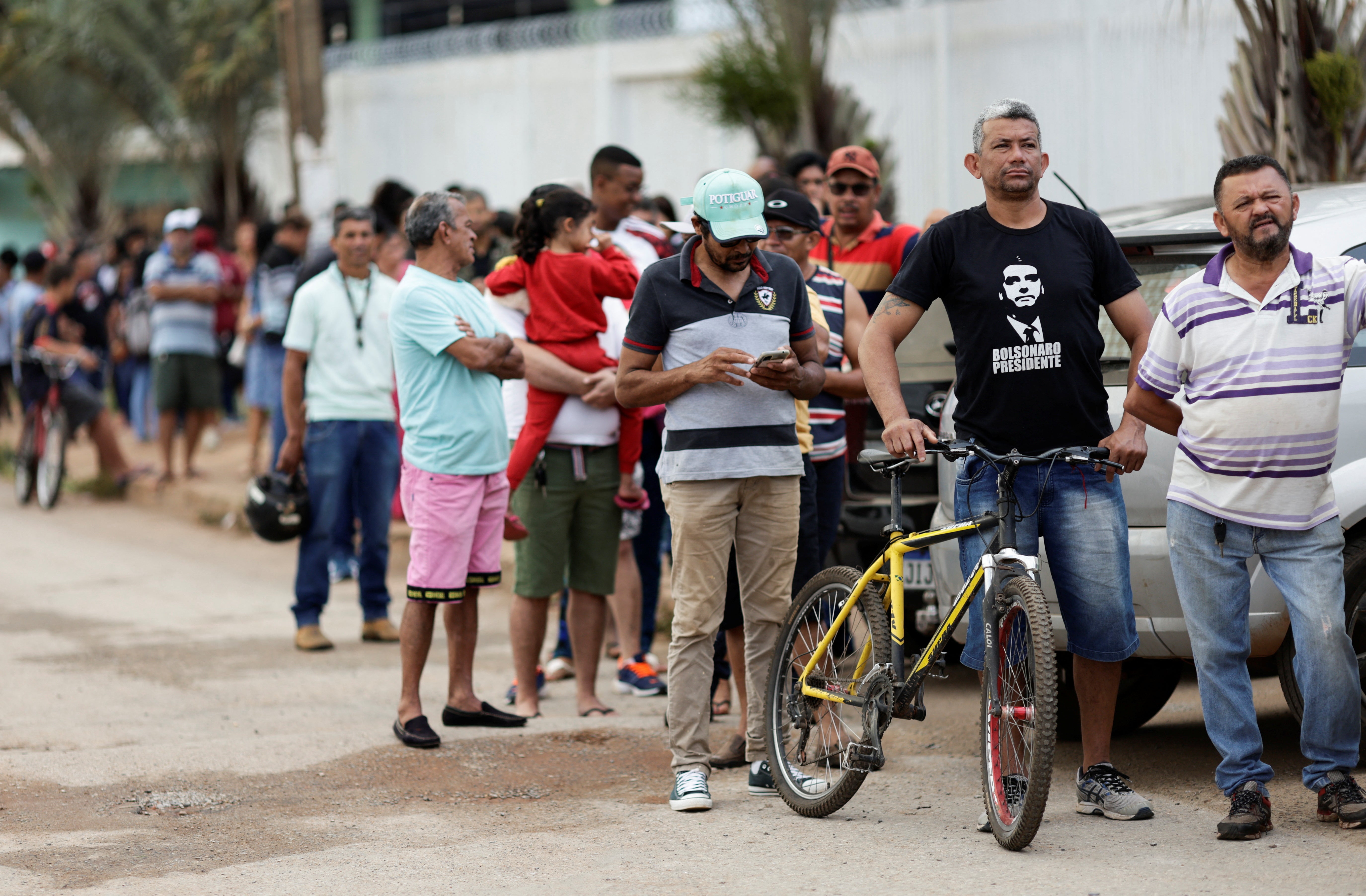
Bolsonaro casts his vote
Bolsonaro was first in line to cast his vote at a military complex in Rio de Janeiro.
He sported the green and yellow colors of the Brazilian flag that always feature at his rallies.
“I’m expecting our victory, for the good of Brazil,” he told reporters afterward. “God willing, Brazil will be victorious today.”
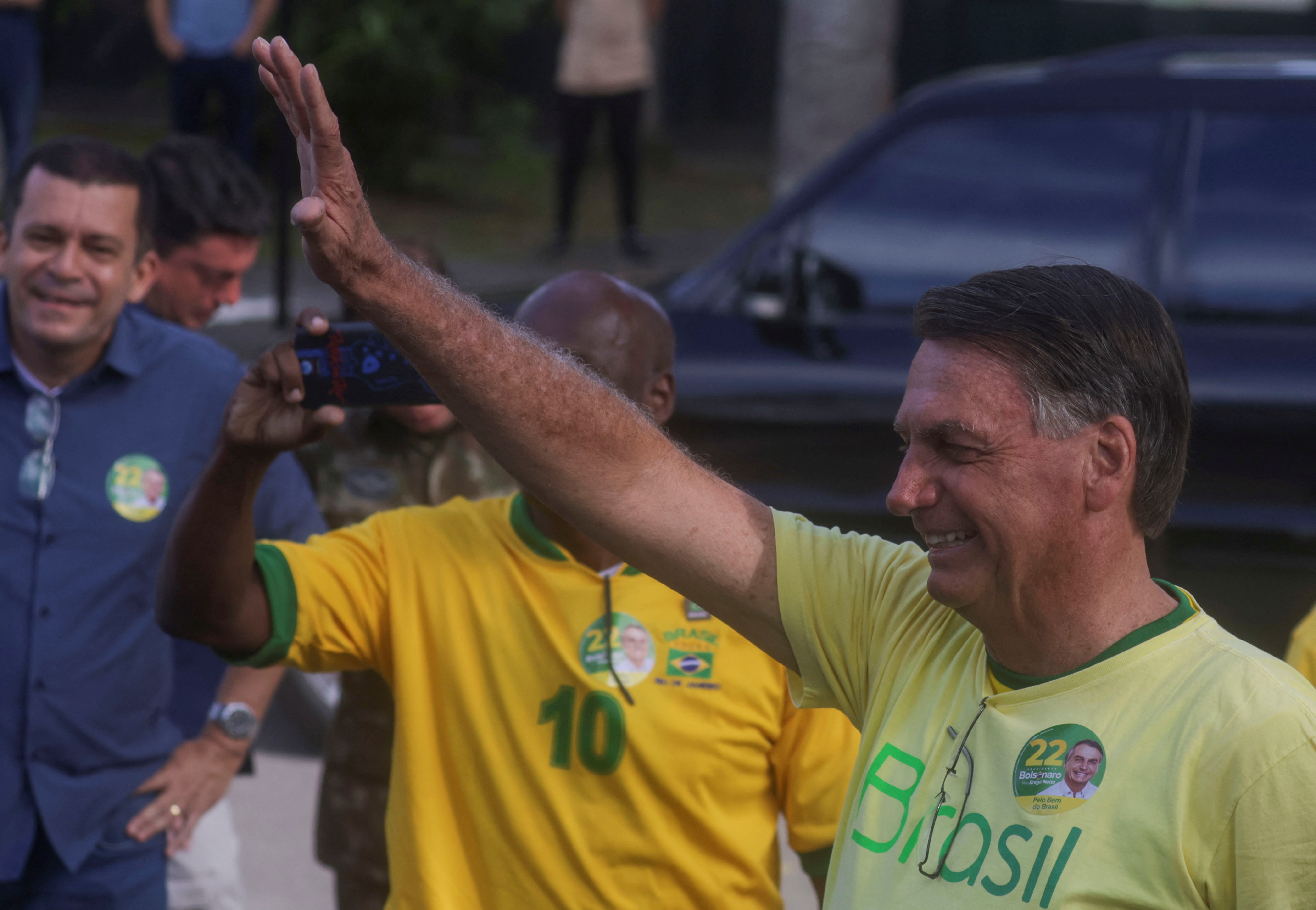
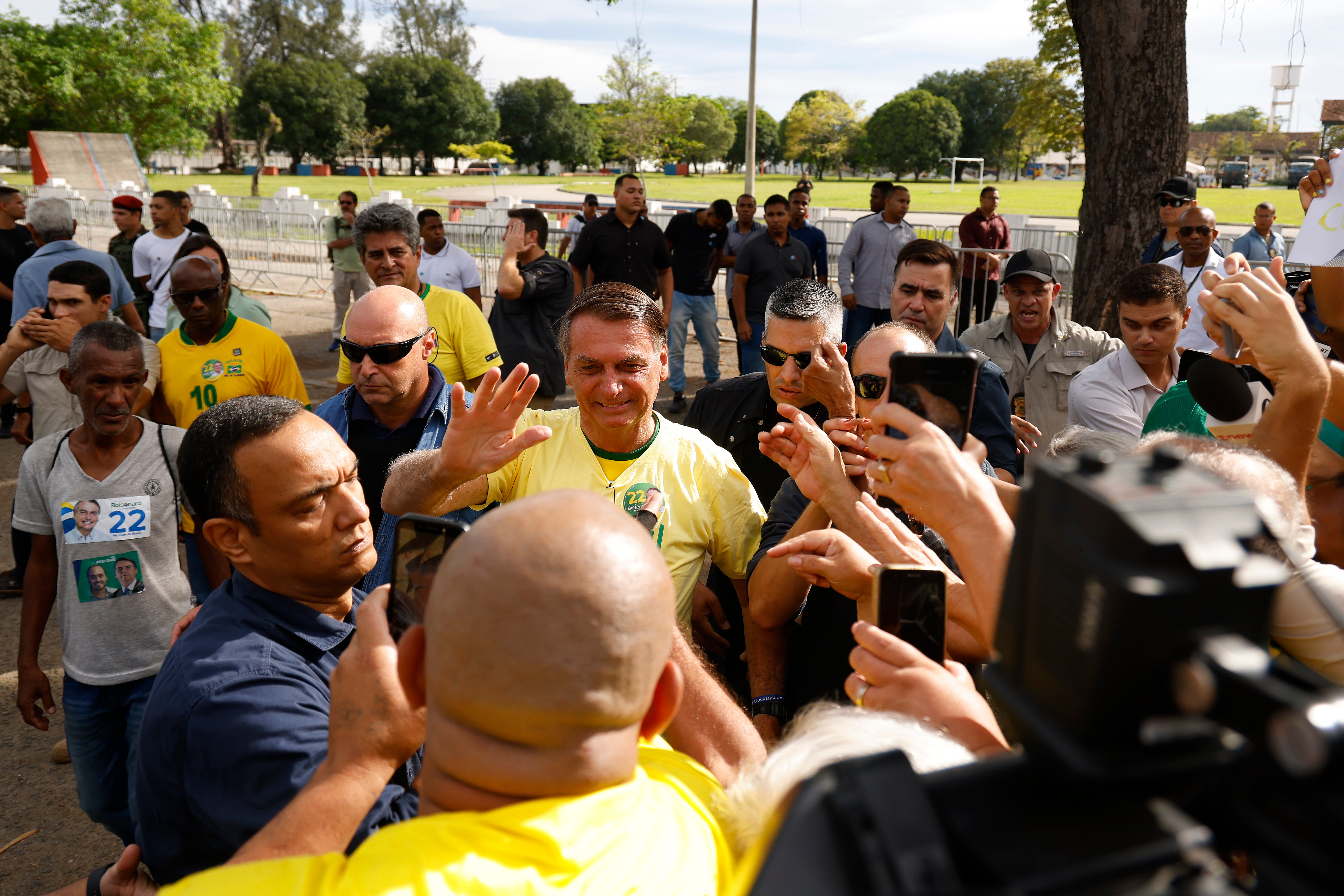
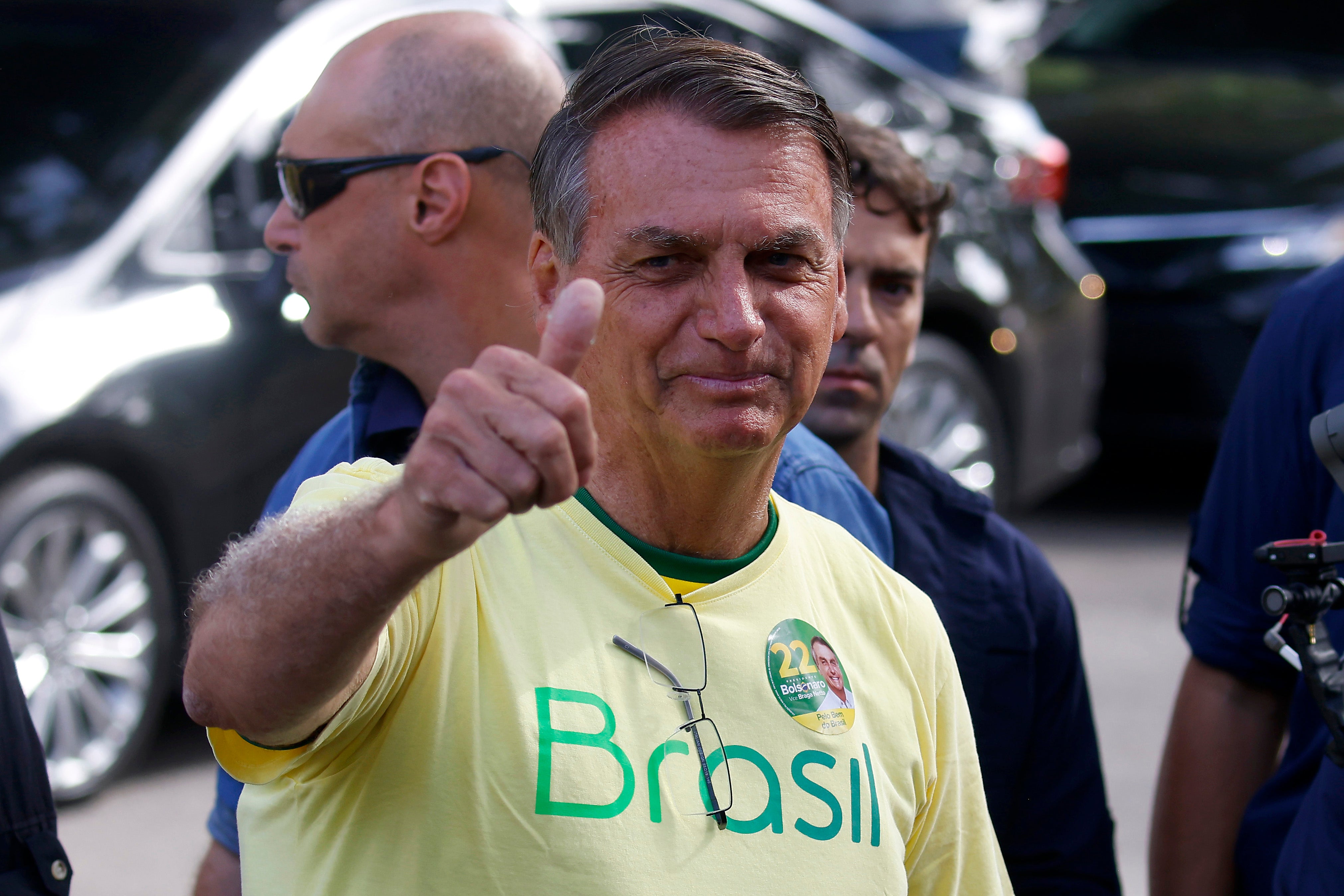
Voter says they were ‘starving’ before da Silva
Voting stations in the capital, Brasilia, were already crowded by morning and, at one of them, retired public servant Luiz Carlos Gomes said he would vote for da Silva.
“He’s the best for the poor, especially in the countryside,” said Gomes, 65, who hails from Maranhao state in the poor northeast region. “We were always starving before him.”
More than 120 million Brazilians are expected to cast ballots, and because the vote is conducted electronically, the final result is usually available within hours after voting stations close in late afternoon.
Most opinion polls gave a lead to da Silva, universally known as Lula, though political analysts agreed the race grew increasingly tight in recent weeks.
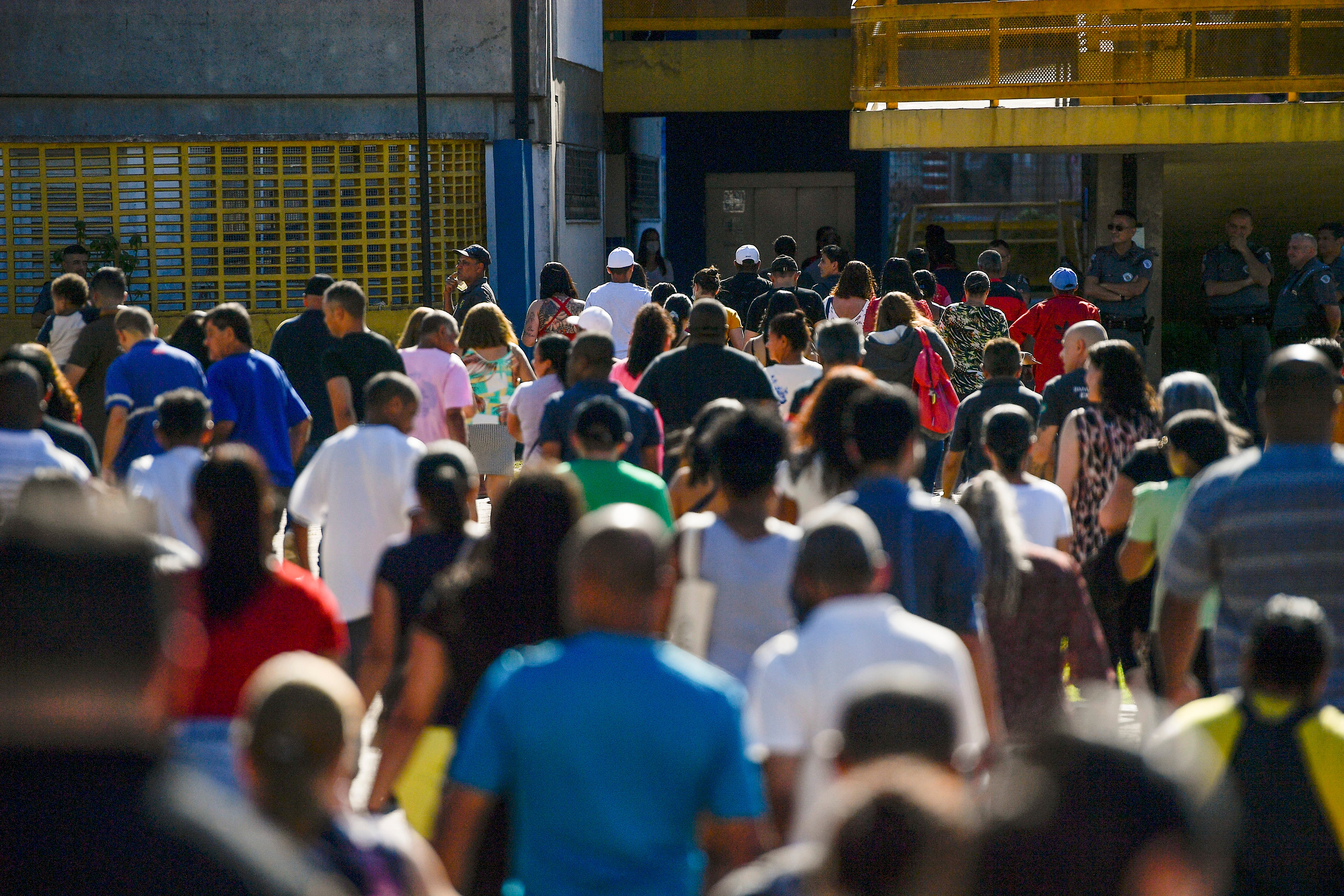
Thousands of Brazilians living in Ireland cast their votes
Thousands of Brazilians living in Ireland have cast their votes in the election for their country’s next president.
A long queue formed early on Sunday at Croke Park in Dublin, where the polls opened at 8am.
Some 12,000 Brazilians are registered in Ireland.
Around 8,000 in Ireland voted in the first round of the race between Luiz Inacio Lula da Silva and Jair Bolsonaro.
Some in the queue were wearing red in support of Mr da Silva, known mononymously as Lula, while others were expressing their support for Mr Bolsonaro.
Brazil’s ambassador to Ireland, Marcel Biato, said they expected to see a good turnout on Sunday.
“They have to be Brazilian citizens and they have to be registered to vote in Ireland,” he told the PA news agency.
With electronic voting being used, results are expected around three hours after the closing of the polls.
Mr Biato said there around 156 million people are eligible to vote in Brazil and 500,000 overseas.
“It’s all tallied electronically; we have a very secure system which has been in use for about 35 years,” he said.
“It’s a very secure system, which means people can be very comfortable and know that their vote counts.”
Geneci da Cruz iu Fhatharta travelled from Galway to cast her ballot.
“We do need to make that effort to travel long hours to come and vote for Lula,” she said.
Alberto dos Santos, who lives in Dublin, turned out to vote for Mr Bolsonaro.
He said he feels there are more Lula supporters in Dublin, but more who support Mr Bolsonaro in Brazil.
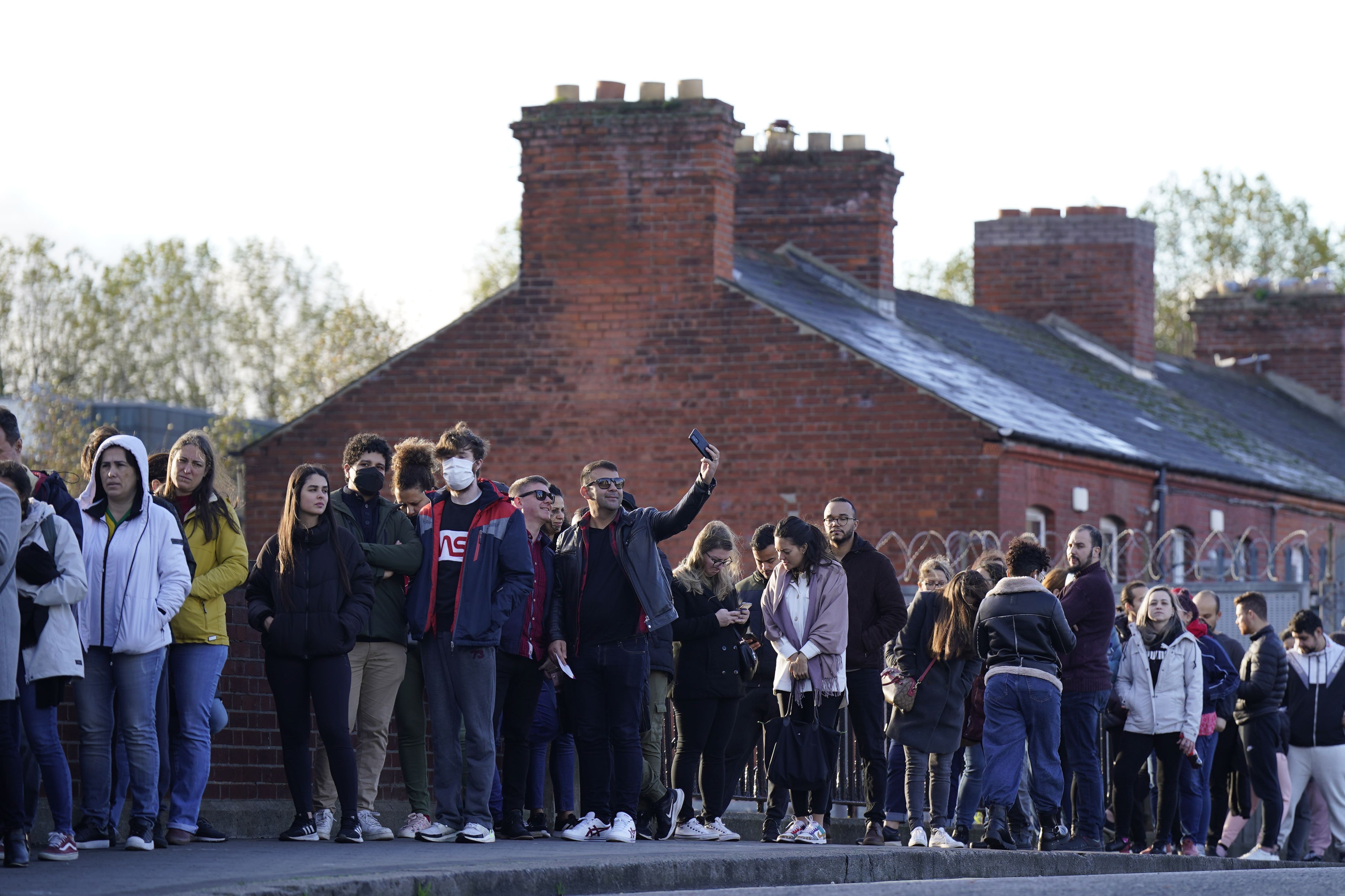
Brazil’s sharp partisan division has split population in two
With Bolsonaro stickers on her chest, Rio de Janeiro resident Ana Maria Vieira said she was certain to vote for the president, and would never countenance picking Lula.
“I saw what Lula and his criminal gang did to this country,” she said, as she arrived to vote in Rio’s Copacabana neighborhood, adding that she thought Bolsonaro’s handling of the economy had been “fantastic.”
At the same polling station, Antonia Cordeiro, 49, said she had just voted for Lula.
She said Bolsonaro had only worried about the concerns of the rich, at least until the final days of the campaign when he rolled out poverty-busting measures to win votes.
“We can’t continue with Bolsonaro, she said. “He hasn’t worked.”





Join our commenting forum
Join thought-provoking conversations, follow other Independent readers and see their replies
Comments